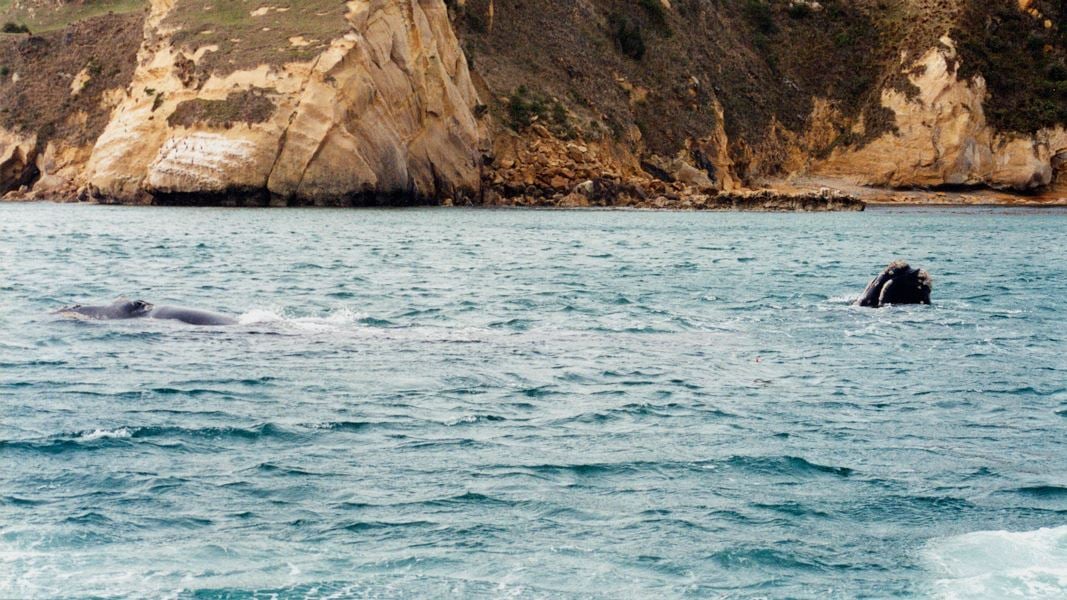
Introduction
Waikato's boating community is being reminded to give marine mammals a wide berth after footage emerged of a vessel appearing to collide with a whale off the coast near Raglan.Date: 20 August 2020
The Department of Conservation's Waikato District Operations Manager Ray Scrimgeour says DOC was contacted by members of the public and news media after an Instagram account showed a boatie allegedly steering his craft close to a female tohorā/right whale accompanied by her calf.
The alleged incident occurred on Saturday 15 August, near Manu Bay. The footage has since been removed from the Instagram account.
Ray Scrimgeour says DOC is now investigating. A man has come forward and is cooperating with DOC.
Tohorā and other marine mammals are protected under the Marine Mammals Protection Act. It is an offence to harass or disturb a marine mammal. Offences can carry penalties of up to six months in prison, a court-imposed fine of up to $250,000, or an infringement notice of up to $800.
Ray Scrimgeour says Saturday's incident reinforces the need for boaties to maintain a distance from marine mammals.
"Tohorā are rare and incredible animals and we are lucky to have them in our waters. Getting too close can put their welfare at risk, particularly when they have a calf. It can also put boaties and other recreators at risk as these are large mammals.
"Boaties should keep their vessels 50m from whales at all times. If it's a mother whale with a calf, that distance should be 200m."
Vessels near marine mammals should be piloted in a safe and sensible manner, and the master of any vessel less than 300 metres from any marine mammal should use their best endeavours to move the vessel at a constant slow speed no faster than the slowest marine mammal in the vicinity, or at idle or 'no wake' speed.
Boaties should avoid sudden or repeated changes of speed or direction in their vessels, and any interaction should end if the animals show any sign of distress or appear to become alarmed.
"The ocean off the North Island is a known habitat for whales: Māui dolphins are commonly seen throughout the western coasts of Waikato and Auckland, orca come into Whaingaroa Harbour, and other species have been spotted along the coast in recent weeks," he says.
"We understand people want to check out these majestic animals, but for everyone's sake – please show respect and admire them from a distance.
"We also appreciate the cooperation of the person involved in the incident."
During winter months, southern right whales spend time in coastal waters where they breed, socialise, and raise their young. It is normal for these whales to appear in very shallow water during this time. During summer, they disperse offshore to feed.
The majority of New Zealand's tohorā population is based in the sub-Antarctic, after hunting reduced their numbers around New Zealand drastically in the 1800s. Increases in sightings of the whales around the mainland is an exciting sign that the species' population is slowly recovering.
People can help by reporting all sightings online or to 0800 DOC HOT (0800 362 468).
Find out more about marine mammals including appropriate behaviour around the various species when they are in their environments.
Read about DOC's enforcement role.
Contact
For media enquiries contact:
Email: media@doc.govt.nz